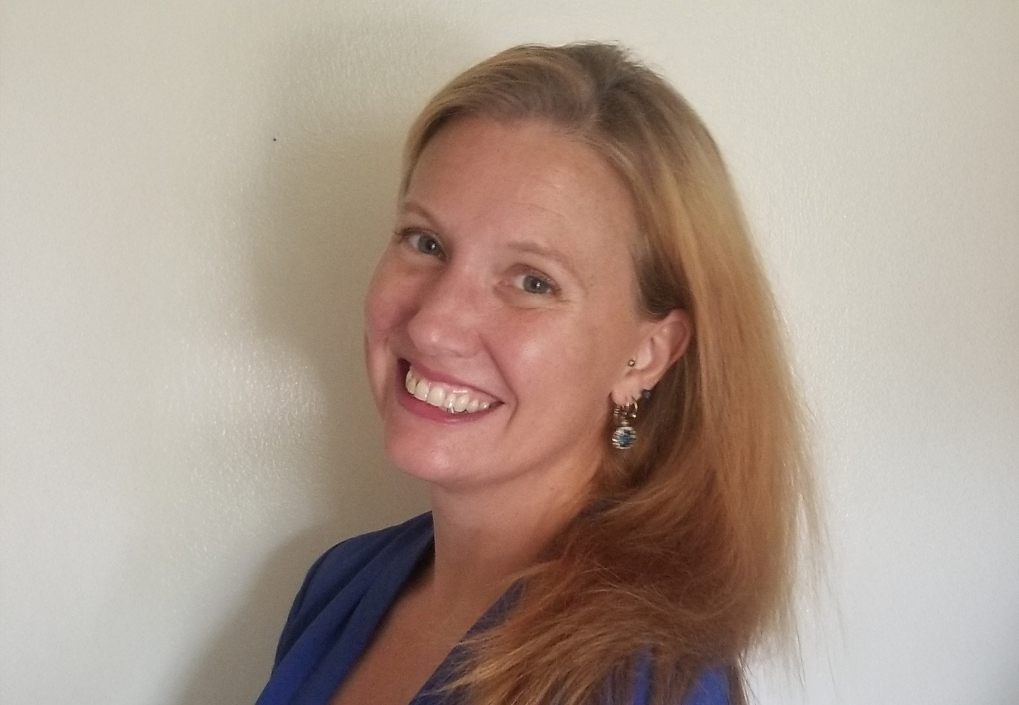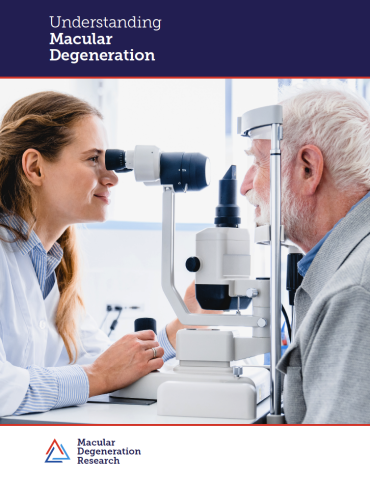Macular Degeneration: Get the Facts
Featuring
Gayatri S. Reilly, MD
Retina Specialist & Vitreoretinal Surgeon at The Retina Group of Washington





Gayatri S. Reilly, MD
Retina Specialist & Vitreoretinal Surgeon at The Retina Group of Washington

Age-related macular degeneration is a leading cause of vision loss in Americans aged 60 and older. Guest speaker Gayatri S. Reilly, MD answered questions and shared facts you need to know about wet and dry macular degeneration.
Dr. Reilly is a retina specialist and vitreoretinal surgeon at The Retina Group of Washington, a large practice in the Washington, D.C. area that specializes in retinal conditions such as macular degeneration.
In addition to treating patients, Dr. Reilly has dedicated her career to research in ophthalmology. He has been a primary or co-investigator for several ophthalmology, uveitis and psychology papers. Dr. Reilly has always maintained an interest in the teaching and educating of residents. She has participated in a number of medical eye missions, educating other physicians on eye examinations and performing comprehensive exams and surgeries on indigent patients in both the United States and abroad.
Download English Transcript PDF
MS. DIANA CAMPBELL: Hello, my name is Diana Campbell, and I’m pleased to be here with you for today’s Macular Degeneration Chat. In honor of February’s Macular Degeneration Awareness Month, today’s Chat topic is Macular Degeneration: Get the Facts. And we’ve received a lot of outstanding questions from our listeners. This Chat is brought to you today by BrightFocus Foundation. Macular Degeneration Research is one of our programs here at BrightFocus. We fund exceptional scientific research worldwide to defeat Alzheimer’s disease, macular degeneration, and glaucoma, and we provide expert information on these heartbreaking diseases. You can find much more information on our website, www.BrightFocus.org.
In honor of AMD Awareness Month, we are changing the format a little bit. Rather than having one broad topic, we’re going back to all the questions we’ve collected from you over time and getting the answers from our guest today. We want to make sure to cover the topic of living with macular degeneration broadly, and we are excited to bring back Dr. Gayatri Reilly as our speaker. Dr. Reilly is a retina specialist and vitreoretinal surgeon at The Retina Group of Washington, a large practice in the Washington, D.C., area that specializes in retinal conditions, such as macular degeneration. In addition to treating patients, Dr. Reilly has dedicated her career to research in ophthalmology. Dr. Reilly has been a primary or co-investigator for several ophthalmology, uveitis, and psychology papers. Dr. Reilly has always maintained an interest in the teaching and educating of residents. She’s participated in a number of medical eye missions, educating other physicians on eye examinations and performing comprehensive exams and surgeries on indigent patients, both in the United States and abroad. Dr. Reilly, thank you so much for joining us today.
DR. GAYATRI REILLY: Thanks for having me back here. It’s a pleasure to be here.
MS. DIANA CAMPBELL: Thank you. We’ve received so many wonderful questions today. I’ve grouped them into some broader themes, and I’m going to start with some AMD basics. Let’s get started with: What is age-related macular degeneration, or AMD? And could you please in your answer describe the differences between wet AMD, dry AMD, and geographic atrophy?
DR. GAYATRI REILLY: Sure. Age-related macular degeneration, or AMD, is an eye disease that can blur your central vision. The macula is a very specialized portion of your retina, and it’s the most important portion for your sharp, straight-ahead vision. So, anytime you’re looking at somebody, having a conversation, or reading a book, you’re using that portion of the retina called the macula. And AMD comes in two main forms, a dry form and a wet form. The dry form of macular degeneration can start off as early, or it can be intermediate. A more advanced form of macular degeneration is wet macular degeneration or dry macular degeneration with geographic atrophy. The biggest differences between wet AMD, dry AMD, and geographic atrophy is that wet AMD is characterized by the presence of abnormal blood vessels. Now, in your retina, in your macula, you’re supposed to have blood vessels present. But when there are blood vessels where they should not be there, that’s when we diagnose wet AMD. And these blood vessels can cause permanent vision loss, and that’s why we take it so, so seriously. Geographic atrophy is an advanced form of dry AMD where the tissue, the light sensitive portion of your macula, begins to atrophy or become very, very thin. When it becomes so thin, you can develop vision loss.
MS. DIANA CAMPBELL: Thank you. And we have a question from one of the listeners that asks: What causes dry AMD to turn into wet AMD? Does dry AMD actually turn into wet AMD, or are they kind of separate processes in the retina?
DR. GAYATRI REILLY: It does progress from dry AMD to wet AMD. Thankfully, only about 15 to 20 percent of patients with AMD will develop the wet form. We don’t know exactly what can cause the transformation from dry to wet, but once you develop wet, we will be seeing the presence of these abnormal blood vessels that I was talking about earlier. And that is, again, what accounts for a significant portion of vision loss.
MS. DIANA CAMPBELL: There aren’t treatments outside of vitamins for dry AMD. What doctors should be monitoring their process, and how often should one see either a retina specialist versus a regular ophthalmologist if this is the case?
DR. GAYATRI REILLY: That’s a great question. Most of the time, a regular general ophthalmologist can manage dry AMD. We typically recommend follow-up about every 6 months, and most of that visit is discussing what we’ll talk about a little bit further in this call—things like vitamins, and signs and symptoms to look out for to, again, detect a change to wet AMD sooner. Depending on where you live, there’s a little bit of a geographic variance in this answer. In my area—in the Washington, D.C., area—there’s just so many retina specialists in this area that frequently patients are followed by retina specialists, but regular general ophthalmologists do a terrific job of managing dry AMD.
MS. DIANA CAMPBELL: Wonderful. I think that’s an important point to make. I know that it’s difficult in some areas to find retina specialists. Is macular degeneration hereditary?
DR. GAYATRI REILLY: It is, and I wish it was as simple as having one gene or something of the sort, but macular degeneration is very hereditary. And one of the first things that I’m counseling patients about with this diagnosis is, we definitely want to have a family discussion regarding this diagnosis, because it is definitely hereditary.
MS. DIANA CAMPBELL: Thank you. I know that there has been confusion and some conversations that I’ve had about the difference between dry eyes and dry AMD. But a step beyond that, does having dry eyes contribute at all to getting macular degeneration?
DR. GAYATRI REILLY: No. Thankfully, dry eyes have no increased risk or any sort of relationship with dry AMD.
MS. DIANA CAMPBELL: Great. Thank you. We’ve got a listener who says that they get large flashes of blue light and floaters. Are those related to macular degeneration?
DR. GAYATRI REILLY: Those are concerning symptoms. Flashes and floaters are something we’d like you to make sure you do get evaluated with either your general ophthalmologist or a retina specialist, but they are typically not symptoms that are related to AMD at all.
MS. DIANA CAMPBELL: Thank you. If you have AMD in one eye, what are the chances your other eye will be affected?
DR. GAYATRI REILLY: Typically, like we talked about, most patients have what starts off as dry AMD, and it’s typically a bilateral condition. So, it’s very, very uncommon for me to diagnose AMD in only one eye. It is almost always bilateral, or involving both eyes, at diagnosis.
MS. DIANA CAMPBELL: And I think it bears saying that people could experience one form in one eye and the other form in the other eye. Is that accurate?
DR. GAYATRI REILLY: Yeah, absolutely. Each eye can have a completely different course of macular degeneration and different forms of macular degeneration. You can have one eye just being dry macular degeneration, the other eye can have wet macular degeneration. But typically, at least at its core, AMD is considered a bilateral—or both-eye—condition.
MS. DIANA CAMPBELL: Great. What percentage of people with AMD go completely blind?
DR. GAYATRI REILLY: That’s a really, really good question. Thankfully, it’s going to be less than 1 percent because AMD, like I started off explaining, it impacts one area, called your macula. Your entire retina is in charge of your vision, and AMD does not tend to impact your peripheral vision, which is still very, very important for everyday life. So, patients with AMD typically do not go completely blind. At its worst—and it is still very, very serious and significant—they can lose central vision, but they do not tend to go completely blind.
MS. DIANA CAMPBELL: That’s reassuring. Can macular degeneration be reversed?
DR. GAYATRI REILLY: Unfortunately, no. Complete reversal of macular degeneration is not typically something that we have any means of achieving. However, it can be stable, so while it is a degenerative condition, the rate of degeneration is so, so variable per patient and even per eye. It’s definitely possible that in a 10-year period of time that there be no change for a given patient. So, it’s not typically reversible in the sense of just diagnosis, but it doesn’t necessarily need to progress quickly.
MS. DIANA CAMPBELL: Great. We just got a question in that is kind of the perfect segue into the next set of questions, which will be centered around diet and lifestyle. The question was: What do children of AMD patients need to do to prevent AMD? And the first question that I had for us is: Are there dietary or lifestyle measures one can take to delay or prevent macular degeneration?
DR. GAYATRI REILLY: Yeah. So, what I usually tell family members of patients who have a diagnosis of AMD is that the best possible thing that you can do is really just take care of your overall health. So, first and foremost, exercise, maintaining a healthy lifestyle is all very, very important. I don’t recommend any supplements for patients who do not have a diagnosis of AMD, but I do recommend a healthy diet. And we know that green leafy vegetables have a lot of protective antioxidant effects on the macula. So, your spinach and your kales are certainly helpful to maintain a healthy diet for your macula.
MS. DIANA CAMPBELL: Great. We mentioned vitamins earlier, which the current formula … well, you can tell me. Can you please discuss AREDS2 and at what stage of macular degeneration they would provide benefit?
DR. GAYATRI REILLY: Sure. So, AREDS2 vitamins. Fortunately, there was a very, very large clinical trial—both the original AREDS vitamins and the AREDS2 supplements—that help to slow down the progression of AMD. It helps to decrease the risk of going from dry macular degeneration to wet macular degeneration by almost 25 percent. For a collection of vitamins, that is excellent. I only prescribe this in patients who have intermediate dry macular degeneration. So, if your doctor has diagnosed you with dry macular degeneration, it is important to ask what stage you have and whether you would benefit from taking these supplements. The AREDS2 vitamins include vitamin C, vitamin E, copper, zinc, lutein, and zeaxanthin. The last two are antioxidants that were added in the AREDS2 supplements that have been proven to help decrease the risk of wet macular degeneration.
MS. DIANA CAMPBELL: And I assume that if the patient has one eye that is already wet, but that other eye is still in the intermediate stage, that they would likely continue taking the AREDS until the other eye has any changes.
DR. GAYATRI REILLY: Yes, I do recommend that they continue to take it, and I explain it to my patient just like you just mentioned, that we’re really trying to decrease the risk of the wet macular degeneration in their better eye. We don’t have any good, proven benefits once a patient has more advanced forms of macular degeneration, so I do primarily recommend the vitamins for intermediate dry.
MS. DIANA CAMPBELL: And just to reiterate what you said previously, this isn’t something that the children of folks who have macular degeneration should go out and start taking, and it’s really effective once they’ve been diagnosed with intermediate dry.
DR. GAYATRI REILLY: Correct, yes. I don’t recommend any supplements prophylactically. In fact, the AREDS2 clinical trial actually looked at exactly that group of patients, in patients who either did not have a diagnosis of macular degeneration or had only early dry macular degeneration, and it was found to be of no benefit. But I think, just like any other supplement, if you have just a healthy diet, you can pretty much be obtaining very much of these same ingredients in just a very normal healthy diet.
MS. DIANA CAMPBELL: Great. We received lots of questions all throughout the year on other supplements that people have heard about from others with macular degeneration or seen online. I’ll name a few, but the broad question is: Are there any other supplements that are helpful that may prevent or delay the progression? And the ones that we get questions about frequently are fish oil, omega-3s, chrysanthemum tea. Goji berries, I think, is more an actual fruit than a supplement, but I imagine there are supplements, too. Are any of these helpful to prevent or delay the progression of AMD?
DR. GAYATRI REILLY: No. A couple of those that you had mentioned were also studied in clinical trials to see if they should be included in the AREDS2 supplements—specifically, omega-3 fatty acids. And it was not found to give additional benefit from it. Now, in general, a lot of these additional things that you’ve mentioned have other impacts that are positive for your body. So, not specific to AMD precisely, but things like fish oils and omega-3s have a lot of benefit to the eye in terms of dry eye and other conditions, but not specific for the delay of the progression of macular degeneration.
MS. DIANA CAMPBELL: Thank you. And just a reminder to everybody listening, as you’re taking, or you’re considering taking other supplements, please make sure to mention them to your doctor, as well, as supplements can also interact with other things. And I always get nervous when I hear people saying, “I’m taking this large dose of chrysanthemum tea,” or something like that, so please make sure to mention that to your primary care physician or your eye care specialist, as well. Let’s see along those same lines, we talk about incorporating colorful foods to our plate—you mentioned spinach and kale—to help in protecting against AMD. One of our listeners has a pretty specific question and would like to know if it makes a difference if the vegetables are cooked or raw. Is there any increased benefit in cooking them, or is the benefit decreased if they’re cooked or overcooked?
DR. GAYATRI REILLY: Honestly, with my patients, I’m just happy that they’re taking them or that’s part of their diet, as long as you’re fairly consistent. In general, cooking some vegetables, you can lose a little bit of some of the nutrients—in particular, vitamin C and B—but not to an extent that it would make it not worthwhile to continue. It’s just any water-soluble vitamin tends to get lost during cooking methods. But I usually just tell my patients that you can have a little bit of both. But really, if you’re thinking about this level of detail, then you’re on the right track already.
MS. DIANA CAMPBELL: I like your advice that you’re happy that they’re incorporating them at all. While we’re on that topic, we literally just had a question about saturated fats. Does eating saturated fats harm the eye?
DR. GAYATRI REILLY: Having high levels of saturated fat is definitely a negative for macular degeneration. Again, going back to one of the first questions you said about things that people can do, by just being healthy, having less saturated fat, in general, is very beneficial for your overall health, which, from what we understand of macular degeneration, is also very helpful. So, just having a high diet of saturated fat, you’re going to have higher levels of cholesterol, and those types of things in general are pretty negative for your overall health.
MS. DIANA CAMPBELL: Sure. Okay, we’re going to transition into some other lifestyle questions. How much does smoking affect AMD?
DR. GAYATRI REILLY: Smoking is one of the biggest things I talk about with patients with AMD, and I always kind of cringe because I know my patients have heard this from primarily every doctor that they see if they are a smoker, but smoking causes changes in the eyes that absolutely can cause vision loss. It’s sort of an exponential relationship, so you’re more than twice as likely to develop AMD if you’re a smoker. And then on top of that, the prognosis and the likelihood of developing more advanced forms of AMD are way, way higher. So, from my perspective, it’s one of the most major modifiable risk factors for AMD. And, like I said, this is the one thing I take the most time in talking about with patients who are smokers because I know they’ve heard it before, and I’m sure they’re doing what they can to quit, but this is the one thing that can really save your vision is if you quit smoking.
MS. DIANA CAMPBELL: I’ve learned to ask recently, because of the availability of so many different types of smokeless nicotine and that sort of thing, is it the nicotine? Should people avoid nicotine, as well, or is it the tobacco or the effect on the lungs? Just a little step further on the smoking.
DR. GAYATRI REILLY: Sure. And I don’t know that we know all of the details of breaking that all down, but we do know that having both the nicotine and the tobacco causes a lot of inflammation in our body, and it’s really that inflammation that we worry about when it comes to macular degeneration. So, we’ll talk a little bit later on in this call about where the research is, and a lot of the research is in exactly that—to decrease inflammation. Both smoking cigarettes and even other tobaccoless or tobacco—all of that stuff still is a high-risk factor. Whether it’s slightly better than a regular cigarette, probably, but it still causes inflammation.
MS. DIANA CAMPBELL: Absolutely. Thanks for clarifying that. I think that makes a lot of sense. The next question is about alcohol: Is there a relationship between alcohol and AMD? Should people be looking to limit their alcohol intake, as well?
DR. GAYATRI REILLY: There’s been no significant impact to light alcohol use, and just like everything else, that we tend to counsel patients just in moderation. There’s been no significant impact to more advanced forms of AMD. You know, things out of those norms, more of a moderate or heavy alcohol consumption does increase your risk of early AMD. So, I think in moderation, small amount of alcohol consumption is fine.
MS. DIANA CAMPBELL: Great. Two late-breaking questions in that same vein before I keep going. I neglected to include in our original dialogue sunglasses and sun. What is the effect of sun on the eyes and relationship to AMD?
DR. GAYATRI REILLY: The sun—that’s definitely a good question. Exposure to sun is definitely a risk factor for developing AMD, and that’s why we do see some population differences between Caucasians and African Americans, because of also their sensitivity and their skin sensitivity to sunlight, as well. In general, we do recommend just wearing UVA/UVB sunglass protection when you’re out in the sun. You don’t need anything particularly expensive, like polarized and things like that. Just your regular UV protection is beneficial to protect your eyes.
MS. DIANA CAMPBELL: Okay. And then the other one was poor sleep. Do poor sleep habits or insomnia, other sleep disorders have an effect on AMD?
DR. GAYATRI REILLY: Not directly. Nothing that we know would be a direct impact, but that kind of goes back to your overall health again. If you have poor sleep hygiene and poor sleep habits, or you have sleep apnea—all these things, in general, tend to impact your health after a while, and that can sort of indirectly impact your AMD, but nothing directly.
MS. DIANA CAMPBELL: Great. Thank you. How about screen time? Does screen time affect AMD?
DR. GAYATRI REILLY: Nope. Screen time has a whole lot of negative impacts to your eyes, as unfortunately we’ve all probably struggled with over the course of our lives, but it will not cause or worsen dry or wet AMD.
MS. DIANA CAMPBELL: Okay. The next question is related to cholesterol and drusen: Are drusen in the eye the result of high cholesterol levels? And a kind of tandem question to that is: What is the cause of drusen? And then following that: Can lowering LDL or other cholesterol levels slow the progress of early-stage dry AMD? And finally: Do statins have an impact on AMD at all?
DR. GAYATRI REILLY: These are really, really good questions. They’ve been sort of studied over the past 5 years. Initially, there was some suggestion that potentially high, high-dose statins—which are, in general, very difficult for patients to tolerate due to side effects—may have a protective role. However, more recent studies have shown that the statins have not had an impact on AMD, so I don’t have a black and white answer on this. All I can sort of say is that research continues to look at this very question, because it is a rather fascinating portion of the disease. Drusen, to the first part of the question, I guess I wish we knew exactly where drusen formation came from, because it would be something wonderful that we could target. It is actually a normal and natural response to aging. So, just as we get older, your eye does form drusen. However, when you don’t have AMD, the natural mechanisms in your macula are able to get rid of drusen, so they’re just natural byproducts that tend to be eliminated just by normal natural function. But in a condition like AMD, for variety of reasons, these byproducts start to collect within the macula.
MS. DIANA CAMPBELL: All right, thank you. Are there medications that affect either onset of AMD or interact regarding treatment of AMD? I know we’ve received a few questions about blood pressure medications and whether they contribute to the onset, but could you just generally mention if there are medications that people should be aware of that interact in some way, either with onset or treatments?
DR. GAYATRI REILLY: No, not really. I mean we do review all the patients’ medications with them, but there are not particular medications that patients need to be wary about when it comes to AMD. Now, going back to the idea of just having your overall health under good control. I always do talk about patients’ blood pressure control and in a more positive way. So, I want their blood pressure to be as well-controlled as possible, whether it’s with medication or however they discussed with their primary care physician. But there’s nothing in particular that I kind of look out for that might be more negative for AMD.
MS. DIANA CAMPBELL: Great. Thank you. Are there any corrective glasses for macular degeneration?
DR. GAYATRI REILLY: That’s a question I get every day, so that’s a really good question, for sure. The best analogy—and I hope this analogy still holds for a few more years—is that your eye is very much like an old-school camera. So, the macula is really the film of that camera. And if you put a new lens on that camera but the film is damaged, you still don’t get these photos to come out. And it’s the same kind of answer that corrective glasses don’t really change your vision with macular degeneration. Now, we always want your vision to be as good as possible, and that definitely involves having corrective glasses, but if there is damage to the macula because of macular degeneration, glasses will not be able to compensate for that.
MS. DIANA CAMPBELL: Thank you. We’re going to switch over into monitoring and treatment at this point. And I’d like to start with geographic atrophy, because in the past year, as many people on the call know, we get a lot of questions about this, the first-ever treatments—and there’s two of them—were approved for geographic atrophy, and they’re now available. Can you please discuss who is a candidate for these treatments, and what should be taken into consideration when making a decision to undergo treatment? They do differ a lot from the injections, obviously, for wet AMD. And that’s a big question. If you could address that, let’s just start there.
DR. GAYATRI REILLY: Sure. We have been extremely excited, you know, at even having these drugs available. Geographic atrophy is an advanced form of dry macular degeneration, where areas within the macula have typically become very thin, become very atrophic, and no longer function. Now, these areas of thinning or atrophy can very, very slowly increase year over year. Now thankfully, patients with geographic atrophy typically do not have a very sudden change, but we do see that the atrophy progresses, and it can impact, again, your central vision. And now, these two new medications that we have, they’re both injections into the eye, similar as to how we treat wet macular degeneration. But their goal is not to improve the areas of atrophy, but instead to try to prevent the atrophy from getting worse. So, that’s really how these drugs are being used clinically. Unfortunately, we currently don’t have any way to make these atrophic areas go away or completely just not develop, but these two new medications have been found to slow down the growth of the atrophy.
MS. DIANA CAMPBELL: I’ve heard in discussions with patients, people say things such as, “Well, I tried the injections for geographic atrophy, but I didn’t notice any difference, so I stopped taking them.” So, I just wanted to point that out and highlight what you said about slowing down progression and managing expectations, I think, and understanding what the treatments are for.
DR. GAYATRI REILLY: Yeah, absolutely. It is really different than any other drug that we tend to use as retina specialists, and it involves a lot of conversation. And I don’t mean this in a light way, but my patients should not notice a difference by getting this medication; that means that the medication is actually working. It’s hard to take a medication when you can’t really recognize the benefit, right? But we do it for other things. You don’t notice if your blood pressure was 140/80 versus 120/80, but we know there’s so many benefits in your blood pressure being under 120/80. So, we do things prophylactically, in that respect, and sort of the same light is that you won’t notice an improvement in your vision, but we are trying. That’s our goal. We’re trying to prevent this atrophy from getting worse, because if it does get worse, you will unfortunately notice a vision change.
MS. DIANA CAMPBELL: Thank you for that. It reminds me of the conversations about glaucoma, as well, and you just have to trust that you know something is good for your eyes.
DR. GAYATRI REILLY: Yeah, so much of this is really just a trust and an open conversation with your treating physician, right? Because sometimes we take for granted that we understand that the patients know what we’re doing or why we’re doing it, but every so often we’re all humbled, and we kind of recognize, like, “Let’s just take a step back, and let’s talk about why we’re doing this and my expectations and your expectations.”
MS. DIANA CAMPBELL: Thank you for mentioning that doctor–patient relationship, too. That’s so important and critical, I think, to people adhering to their treatments or understanding why they’re doing them, so I appreciate that. So, aside from these new geographic atrophy treatments, could you discuss some of the other kind of—quote-unquote is how I put it—“newer treatments.” There have been some other innovations and drug approvals in the wet AMD side this year or in the past year or 2, such as Vabysmo® and Eylea®. Could you go over those a little bit and how they differ from the original standard of care?
DR. GAYATRI REILLY: Yeah, we’ve been also fortunate in wet macular degeneration in having more options. We traditionally had, at first, just one medication, and then we had two medications for another 5 years, and then we only had three medications for the better part of maybe 15 years. So, to have two new medications in, relatively, a 1- to 2-year span is a huge difference for us. And it’s just more tools in your tool belt. The difference between these two medications is that they are expected to have the same benefits, meaning treating the wet macular degeneration just as successfully as the other medications, but potentially with less frequency. Medications in the eye for these injections that I’ve been alluding to, again, these are a treatment for wet macular degeneration, because we don’t have a cure for it. When the medication wears off, you need to get your medication again. For some of the earlier medications we used, these injections would, unfortunately, wear off after 4 to maybe 6 weeks. These newer medications have been clinically proven in clinical trials to last longer, so that can decrease just the burden for the patient and having family members to come in every single month. There’s a lot to having these appointments monthly, and these newer medications have a potential for being used less frequently. Now, I kind of emphasize the potential because not everybody’s wet macular degeneration is exactly the same. And in clinical trials, patients are definitely different than somebody who’s been treated with wet macular degeneration for 15 years. And so, it’s definitely a good dialogue, again, with your treating physician of, “Hey, there’s these medications. Do you think these medications are a benefit for me? Why or why not? Or what do you think that they could do for me, or potentially, why they may not be helpful for me?”
MS. DIANA CAMPBELL: Along those lines, you mentioned patients who have been in treatment for a long time. We just got a question as you were talking. The question is: Will wet AMD get worse the longer you have it, even if you get the injections?
DR. GAYATRI REILLY: So, our primary goal—and we are fairly successful in achieving that goal—is maintenance. It’s very difficult with wet macular degeneration to get improvement, but we are rather successful to create stability and to create maintenance in that the wet macular degeneration should not continue to get worse long term.
MS. DIANA CAMPBELL: Thank you. We always get a lot of questions about red light therapy or photobiomodulation. And I know there is a slight difference in what’s going on in Europe and here. Could you talk a little bit about that, or if it is something that’s being considered for use in the United States?
DR. GAYATRI REILLY: So, there is a U.S.-based clinical trial looking at red light therapy. And the goal of the red light therapy is to try to decrease the rate of progression of the intermediate AMD to geographic atrophy. So, in the U.K., they were able to find that patients had a lower rate of geographic atrophy in the eyes that were treated, but it’s still very, very early in both clinical trial and in clinical practice. And then, in the U.S., it’s been a fairly limited clinical trial that was looking at using this. But right now, it is sort of promising in decreasing the rate of geographic atrophy progression.
MS. DIANA CAMPBELL: We will definitely continue to keep tabs on that. And my final questions are in a similar vein. I’d like to discuss any promising new treatments that might be in clinical trials on the horizon. I know we get a lot of questions about stem cells. People are, of course, very hopeful for that as a way to reverse AMD, and I know we’re not quite there yet. And then we had a couple of questions about gene variants, targeted treatment, blood markers, that sort of thing. But generally, could you talk about what you’re hopeful for that’s on the horizon treatment-wise?
DR. GAYATRI REILLY: Yeah. To me, I think that question can be answered, sort of, what I’m hoping for in the next few years, the next decade—that kind of thing. I feel like there’s a different answer for different time courses. I think that our treatment for wet macular degeneration has changed dramatically just over the past couple of years, like we just talked about, so I look forward to, still, just better medications, medications that can last longer in a patient’s eye so that they’re not so debilitated by their treatment burden. That, I think, is going to continue to get better in a shorter period of time, just have better medications that last longer. Longer term, things like stem cell treatment—clearly that would be revolutionary for us, as retina specialists, to be able to actually regenerate damaged cells. I think that is always something that is being researched, but we’re still quite a ways away from that being a reasonable treatment anytime soon, but we’re always just as excited whenever there’s any case reports or any positive news in that direction. And then, the other things that are always being researched are oral medications, right? Especially for geographic atrophy, if there’s any oral medications that patients can take versus coming in to get an injection in the eye, which, for lots of different reasons, is a lot for the patient. So, I think oral medications, better medications, other ways of delivering the medication. We’ve had some progress in, like, a surgical implant to provide a constant flow of medication, so I think those are the things that we could expect over the next 5–10 years. Longer term, further down the road, things that we can hope will continue to develop would be things like stem cell treatment.
MS. DIANA CAMPBELL: Great. So, we’re coming to the end of our time together. I’m going to go through our closing comments, and then I’ll give you a chance at the end to prepare any closing thoughts or things I might have missed. In the meantime, to our listeners, I sincerely hope you found today’s Chat helpful. Our next BrightFocus Macular Chat will be on Wednesday, March 27, and the topic is What You Need to Know About Cataracts and Macular Degeneration. With that, Dr. Reilly, do you have any closing thoughts or recommendations you’d like to share with our audience today?
DR. GAYATRI REILLY: No, I think the questions were terrific. They really show a good understanding of macular degeneration, and I just hope that, as patients, everybody continues to ask these questions to their treating doctors, because I think communication is so, so important.
MS. DIANA CAMPBELL: Very, very, very true. Well, it was wonderful to have you back today. You’ve been a faithful Chat speaker for us over many years, and it’s wonderful to hear your voice again. Thank you very much. And to our listeners, thank you for joining us today. And this concludes the BrightFocus Macular Chat. Thank you.
This program is supported in part by educational grants from:







BrightFocus Foundation is a premier global nonprofit funder of research to defeat Alzheimer’s, macular degeneration, and glaucoma. Through its flagship research programs — Alzheimer’s Disease Research, Macular Degeneration Research, and National Glaucoma Research— the Foundation has awarded nearly $300 million in groundbreaking research funding over the past 51 years and shares the latest research findings, expert information, and resources to empower the millions impacted by these devastating diseases. Learn more at brightfocus.org.
Disclaimer: The information provided here is a public service of BrightFocus Foundation and is not intended to constitute medical advice. Please consult your physician for personalized medical, dietary, and/or exercise advice. Any medications or supplements should only be taken under medical supervision. BrightFocus Foundation does not endorse any medical products or therapies.

Join us for an in-depth discussion on the latest developments in wet age-related macular degeneration treatment.

Learn about practical tips for maintaining quality of life with low vision.

Conozca las dos formas de degeneración macular relacionada con la edad (DMRE), la importancia del diagnóstico temprano, los hábitos saludables que pueden reducir el riesgo de desarrollar DMAE y cómo controlar su vista si tiene esta enfermedad ocular.

Explore key facts about Stargardt disease, a rare form of juvenile macular degeneration, with expert insights from a retina specialist.
